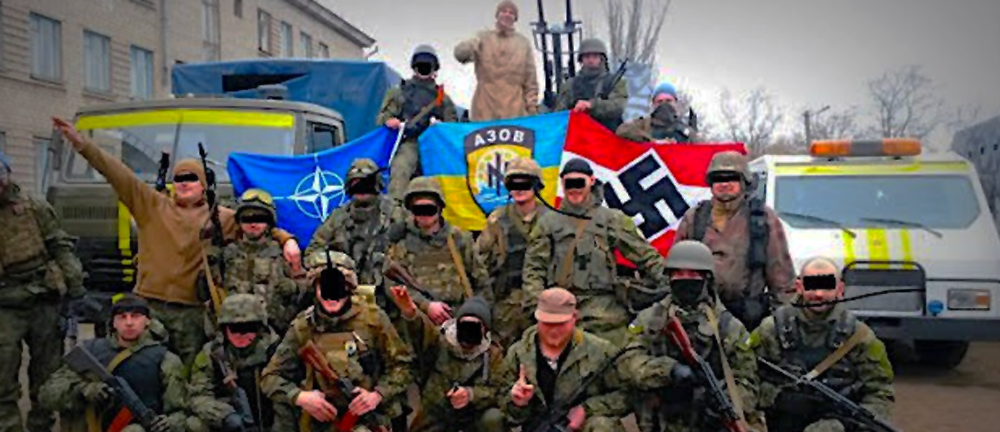The politics and complex history of eastern Europe are not the focus of the Western media’s attempt to explain the war in Ukraine. Instead the personality of Russia’s president is the focus. A latent Russophobia has existed since the end of the Cold War, supplemented in the past three decades by the Russians managing to be the evil villain in almost every film, video game, and series, except after 9/11, when Muslims became the focus.
The attempt at cancelling prominent Russians such as Yuri Gagarin, Dostoevsky, Shostakovich—all of whom died decades before the Russian attack on Ukraine—and the banning of Russian media such as RT reflect a propaganda war that has already been won. Many left-leaning people seem to have just discovered that they are anti-war activists since Russia’s invasion. This is positive only if it is against all wars, not just the ones started by the enemies of the West.
Since 2001 France has made military interventions in Mali, Ivory Coast, Chad, Somalia, Central African Republic, Syria, and Iraq. Portugal at present has a military deployment in Mozambique. Fourteen countries in Africa are forced to link their currency with the euro. Ukraine itself sent thousands of soldiers into Iraq. Britain has thousands of troops in countries such as Ireland and Kenya; and this is not to mention the United States, which has its military and intelligence forces involved in every continent, with at least 750 military bases around the world.
The question “Is Russia imperialist?” misses the point of what imperialism is. Imperialism is not when one country invades another. If this were the case Poland would be imperialist, as it annexed parts of western Ukraine and Belarus in 1920; Ukraine would also be imperialist, as it participated in the war in Iraq. Imperialism is the highest stage of capitalism: it is a world system, represented today by the United States and the European Union and the countries subordinate to them.
Russia falls far short of being the leading exporter of capital in the world; neither does it represent an alternative to imperialism, as the USSR did. Russia does give support to such countries as Cuba, Nicaragua and Venezuela and is a partner of People’s China.
In Russia itself the opposition to Putin is led by the Communist Party of the Russian Federation, and this is a big incentive for Putin to oppose the West. It is the CPRF that suffers most when elections are rigged and activists are repressed by the Russian authorities. Yet Western media ignore this and instead spotlight pro-Western figures who are on the fringes of Russian politics.
It was imperialism that created Putin, with the counter-revolution in the USSR and the brutal imposition of capitalism in the Yeltsin years. The rise in poverty, drug addiction, prostitution, homelessness, premature deaths, rampant inequality, the two brutal wars in Chechnya and the rise of Islamic extremism were Russia’s reward for embracing capitalism.
Ukraine undeniably has a problem with the extreme right. Those who say that we should listen to the “Ukrainian left” opposed to Russia surely must not mean the likes of the Communist Party of Ukraine, banned since 2015. Neither do they mean the eleven opposition parties recently banned by Zelenskiy’s government—and this while fascist groups such as Azov, Svoboda and Right Sector are permitted to exist.* Statues to the Red Army are destroyed, yet statues commemorating the Nazi collaborator Stepan Bandera are allowed to exist.
In what democratic country are neo-Nazis brought in as an official unit of the national guard, as the Azov Battalion was? At the same time the Ukrainian government arrests the Kononovych brothers, leaders of the Ukrainian Communist Youth. President Zelenskiy’s main financial backer, Igor Kolomoiskiy, was also a financier of the Azov Battalion.
Ukraine is not the only country in Europe with a strong right wing—far from it. However, it is exceptional in that the most extremist of them have been brought in as an official part of the state apparatus, their ideology has been encouraged by the state, their main political opponents have been repressed, and they were the best-armed and best-trained fascists in Europe.
Russia’s war could not have happened were it not for the encouraging of fascism by the West, the war in Donbass, which took 14,000 lives, and Ukraine moving to join NATO. This is not to say we should support its operation—which arguably has created more unity among the West and NATO than existed before—or see the Russian state as heroes, but we should not join those who want to use Ukraine as our generation’s “Little Catholic Belgium.” Their enemies are not necessarily our enemies.
*Alexander Rubinstein and Max Blumenthal, “How Ukraine’s Jewish president Zelensky made peace with neo-Nazi paramilitaries on front lines of war with Russia,” Grayzone, 4 March 2022 (https://thegrayzone.com/2022/03/04/nazis-ukrainian-war-russia/).






